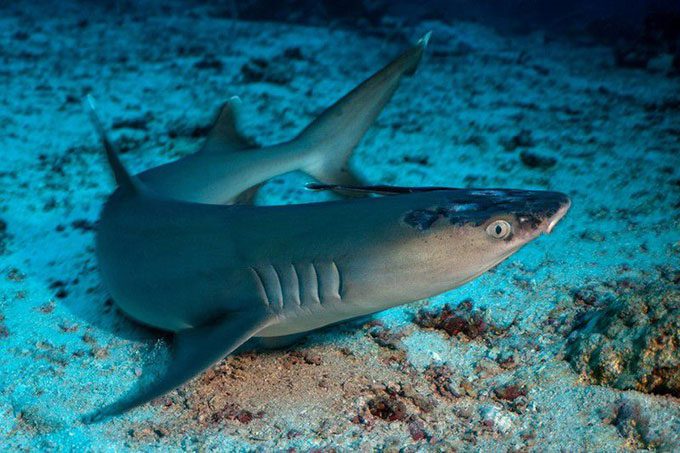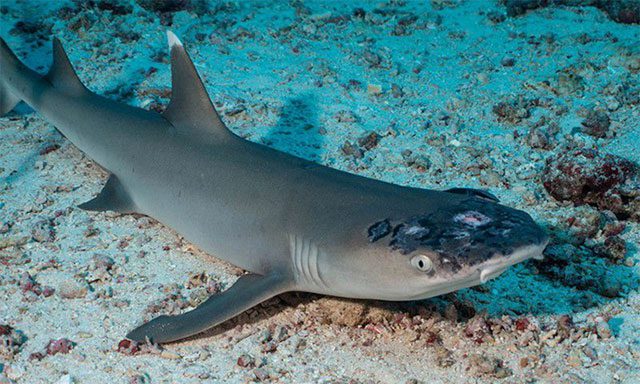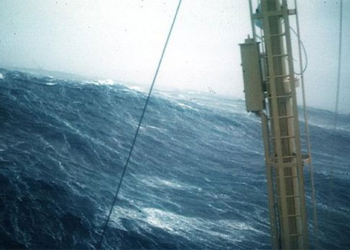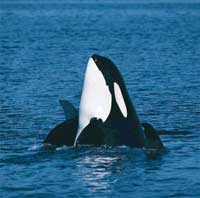Marine biologists are investigating an unusual disease causing severe skin damage to white-tip reef sharks in Malaysia.
White-tip reef sharks – named for their distinctive markings on the dorsal fin and tail – spend most of their time resting in caves around coral reefs during the day and typically venture out only at night to hunt for small fish and other marine animals. This species is one of the most commonly found sharks in the Indo-Pacific coral reef system, but it is currently at risk of extinction due to habitat loss and overfishing.

The dorsal fin of the white-tip reef shark is bright white. (Photo: Jason Isley).
Images circulating on social media in April, taken by photographer Jason Isley off the coast of Sabah on Borneo Island, prompted Malaysian biologists to warn that the “vulnerable” shark population is facing a new threat from a mysterious skin disease.
A subsequent survey conducted by divers, government experts, and conservation groups around Sipadan Island, a nearby popular diving destination, recorded the skin disease affecting all the shark populations they encountered.

The unusual disease causes severe wounds on the shark’s skin. (Photo: Jason Isley).
Identifying the cause, the research team found that the sea surface temperature at Sipadan had risen to 29.5 degrees Celsius in May, one degree higher than in 1985.
“Ocean warming may be related to what we are seeing with the sick sharks at Sipadan,” emphasized senior marine biologist Davies Austin Spiji from the non-profit conservation group Reef Guardian. “We can rule out human factors because Sipadan is a marine reserve where fishing is prohibited, and there are no nearby settlements or industries.”
Professor Mohamed Shariff Mohamed Din at Putra University Malaysia added that sightings of skin damage on white-tip reef sharks coincide with reports of coral bleaching in the area. However, a comprehensive scientific study has yet to be conducted.
In May, the research team attempted to catch some sharks for sampling but was unsuccessful. Mabel Manjaji-Matsumoto, a senior lecturer at the Borneo Marine Research Institute at Universiti Malaysia Sabah, told Reuters that they plan to make another attempt in July.





















































